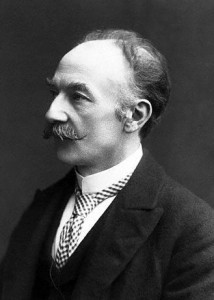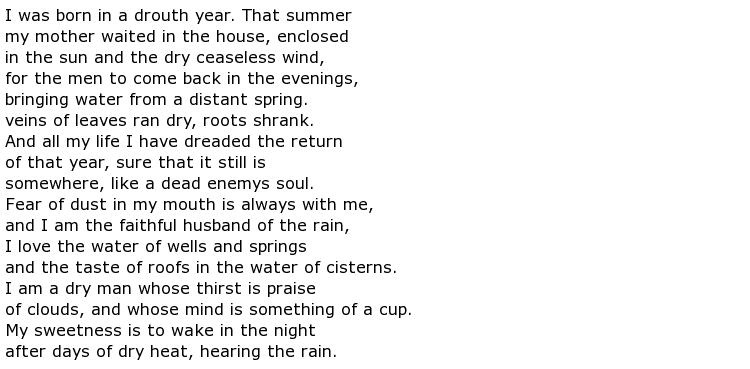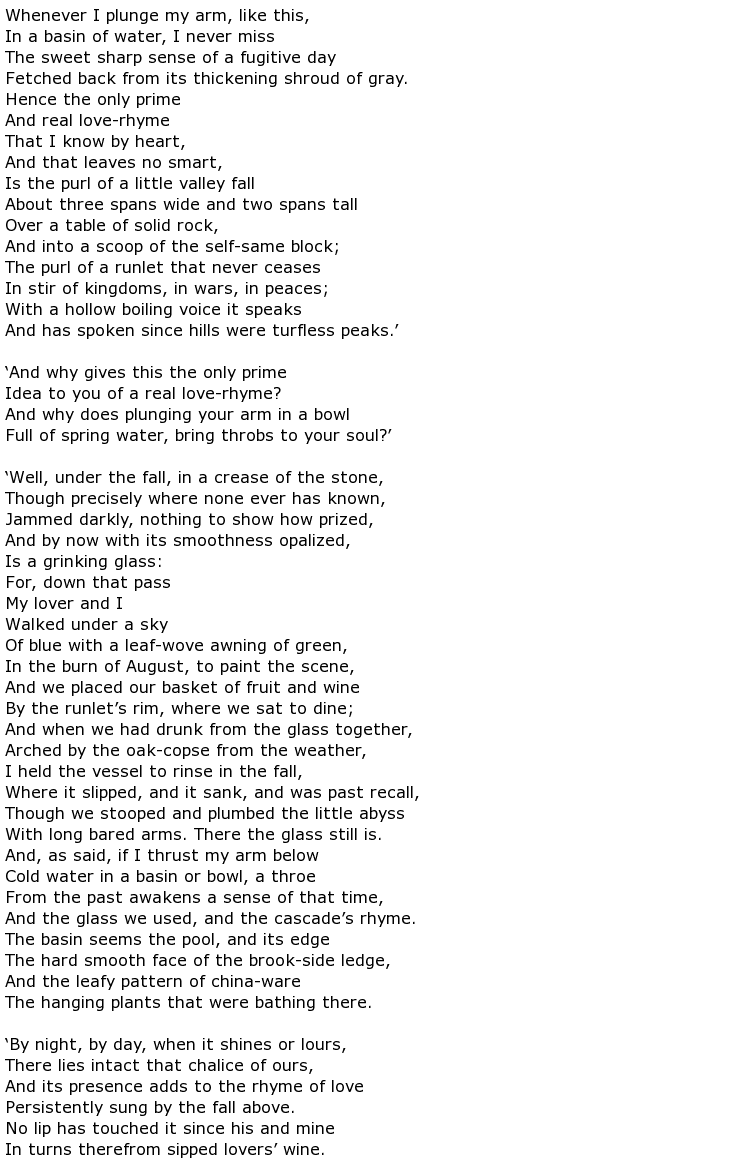 The ancient Greeks believe that there were four principle elements of which everything in the universe was derived from: earth, wind, fire and water. This belief was the cornerstone of much of philosophical thought for over two thousand years, so it should be no mystery that water has become a major poetry topic. Add to that the reality that much of life around the world is directly associated with oceans, lakes, rivers and streams, it makes sense that water is held in such high regard. Without doubt, water is recognized for its essential role in life and its place as the ‘universal solvent’ in the world of chemistry.
The ancient Greeks believe that there were four principle elements of which everything in the universe was derived from: earth, wind, fire and water. This belief was the cornerstone of much of philosophical thought for over two thousand years, so it should be no mystery that water has become a major poetry topic. Add to that the reality that much of life around the world is directly associated with oceans, lakes, rivers and streams, it makes sense that water is held in such high regard. Without doubt, water is recognized for its essential role in life and its place as the ‘universal solvent’ in the world of chemistry.
With the recent interest in ecology over the past several decades, our natural water resources figure prominently in much of the discussion about pollution, conservation and non-renewable resources. When I was teaching biology at a local high school, I often used water to help explain the difference between renewable and non-renewable resources, stating that we can grow more trees, but we can never make more water — what we have is all we have. I think it was a lesson well received and understood. No one ever missed the question about it on exams.
My first example of water poetry comes from someone who shares my last name, but is not, to my knowledge, related in anyway. Wendell Berry, noted activist against such things as the Vietnam War and irresponsible agricultural practices. He was a staunch supporter of sustainable agriculture and of agrarian values. Berry wrote numerous poems dealing with nature and, in particular, water.
Water
by Wendell Berry

Another poet who had a passion for works about nature and water was Thomas Hardy. Born in 1840, he was a strong supporter of the natural world and opposed animal cruelty in any form. Hardy was, for a long time, regarded more for his writing of prose, as he was reluctant to share much of his poetry until later in life. In fact, he gave up writing novels entirely and focused on poetry until his death in 1928. Here is one of his many offerings.
Under the Waterfall
by Thomas Hardy

One of my favorite authors is the noted Chinese poet Li Po. Sometimes known as Li Bai, he was a major poet during the Tang Dynasty. The Tang Dynasty in itself is often called the Golden Era of Chinese Poetry. We are fortunate enough to have over one thousand of Li Po’s poems to view — it is likely that he wrote many more, but that they have been lost over the years for any number of reasons. His poems have been translated into many languages, and they have had a long lasting impact on classical Japanese poetry. As with Hardy, Li Po often used the waterfall as a focus of his work.
Waterfall at Lu-shan
by Li Po

Water is, without any doubt, one of the most important elements of our world; without it, we would not exist. I hope we are appreciative, not only of the value of water and the role it plays in every living thing, but also as topic of poetry and song. Whether observed in a stream cutting through a rural farm in Kentucky or along the Yangtze River in China, water is truly one of our most valuable resources.


You must register to comment. Log in or Register.